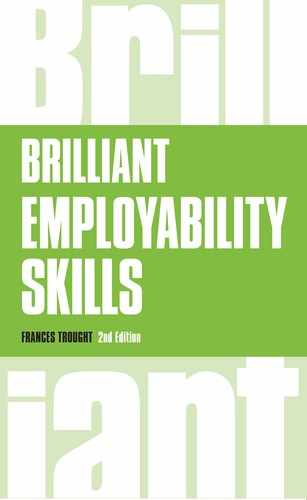Foreword
I wrote an introduction to the first edition of this excellent book back in 2011, and when I was asked to write the foreword for this new edition, the obvious question was: What has changed in five years?
Clearly, on the surface a lot has changed: we are out of the 2009–13 recession and into a growing and relatively buoyant economy, with many more graduate jobs. The service sector – from banking and finance to hotel and catering – is booming again, especially in London and the big cities. Technology is even more dominant in our lives – and in the workplace – than ever before as we all seem to be ‘knowledge workers’ now. And there are jobs being advertised which didn’t even exist in 2011 (what exactly does an IT scrum-master do?). Graduate earnings are inching up. This is a comparatively good time to graduate.
But the economic cycle is just that: a cycle. Risk and uncertainty are always around the corner. Who knows what world the graduate of 2020 will be faced with? What will the economy look like? What new jobs and careers will be available? What jobs will be superseded by machines and robots?
So this book deals with the underlying and eternal verities about job seeking. The most important of these is employability. And underpinning that is the work ethic. Without it, all that follows is merely window-dressing. And, of course, the work ethic is not a synonym for workaholic: it means industrious and hard-working, reliable and conscientious
Jobs come and go, careers flourish or flounder, but a person’s basic employability – the ability to be employable – is the rock upon which the next job or career can be built. What does a person need to allow them to succeed and prosper in the twenty-first century economy in general and jobs market in particular? What skills and attributes, taught and learned, acquired and innate, would need to be identified and displayed?
Top-level communication skills are a prerequisite: speech, writing and personal appearance (body language), as an individual and as part of a team. Poor formal speech and txt wrtg put you on the back foot, as does an inability to use the most modern communication systems (Snapchat and Instagram among others as I write this in 2016). And empathy and emotional intelligence are human traits which computers cannot simulate.
The ability to gather information, analyse it, synthesise it and then apply it is a vital skill. Finally, the ability to learn new skills (and teach others) through formal and informal continuous professional development is essential.
All of these skills and abilities can be learnt. None of them are beyond anybody’s reach. It is as often about attitude as it is ability, and attitudes can be trained through practice and hard work.
You may have noticed that employability does not demand a formal qualification. True, one cannot be a lawyer or a physicist without either a qualification or a degree or both, but the lawyers and physicists who languish in un- or underemployment are probably not displaying the underpinning employability traits outlined above.
So the message is clear: a degree is often necessary, but rarely sufficient. Jobs are for today, careers for the immediate future, but employability is for ever. And employability can be learnt, honed and practised. Oh, and it is never finished.
Mike Hill, CEO, Higher Education
Careers Services Unit and Graduate Prospects
